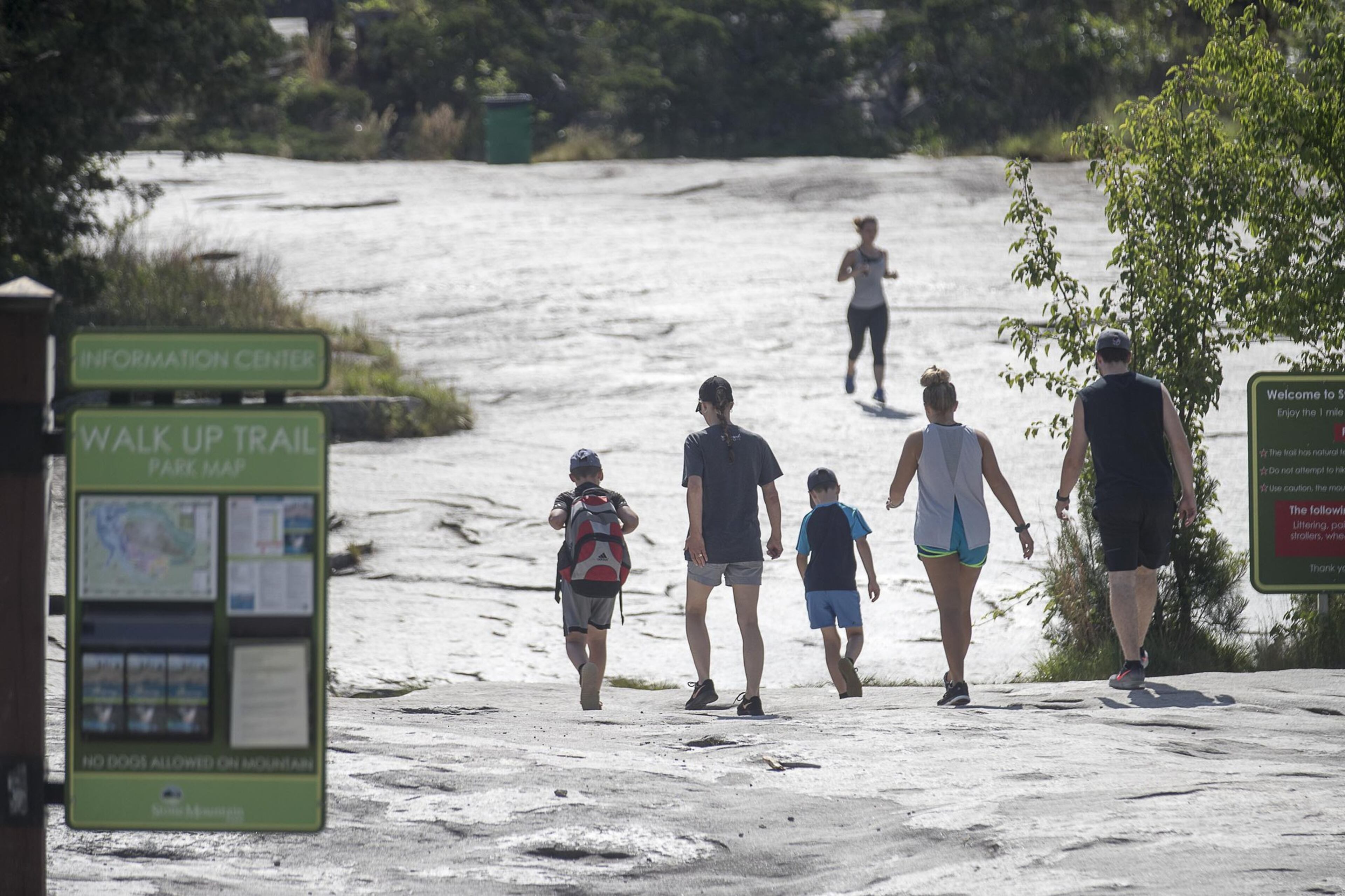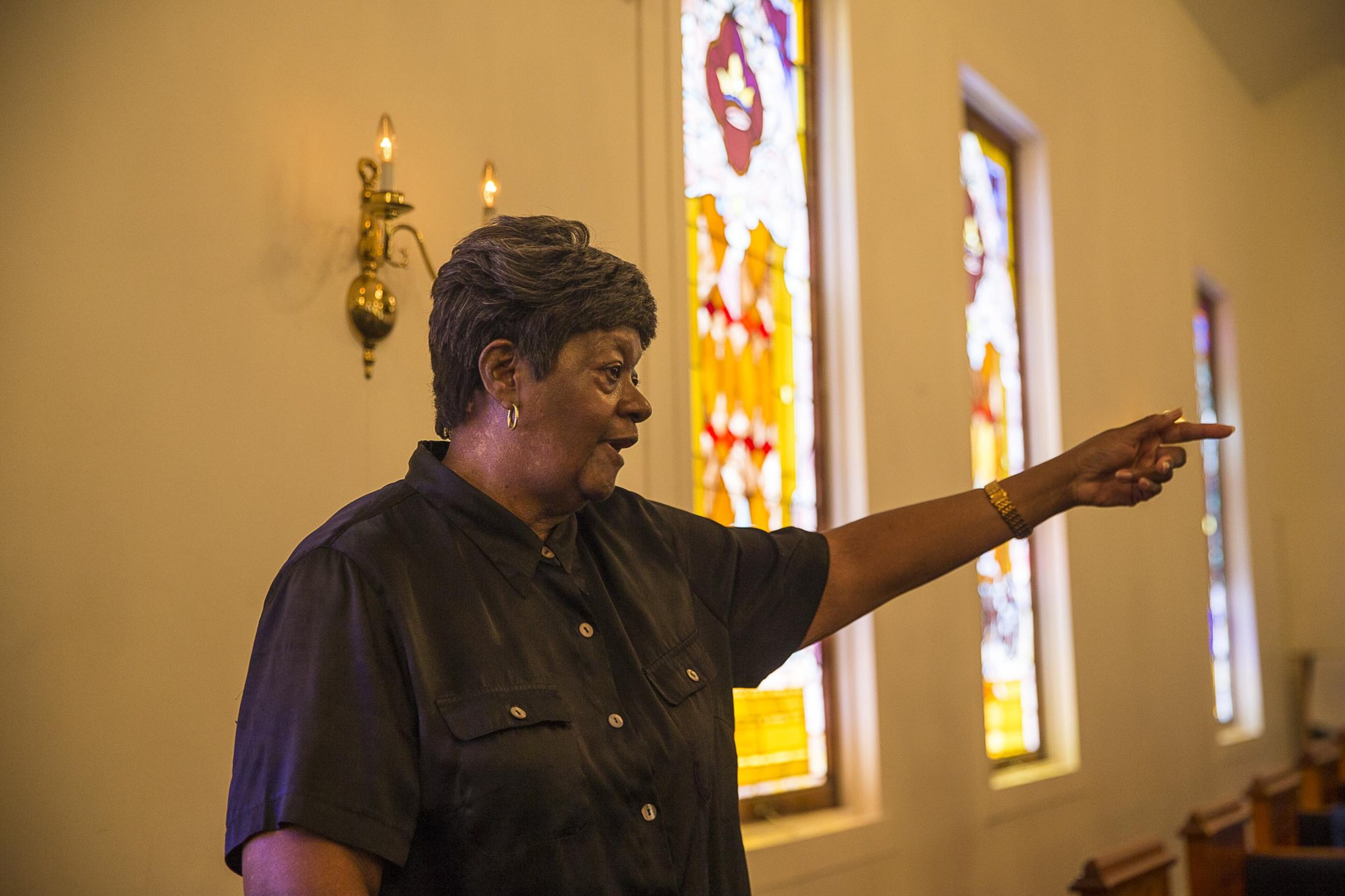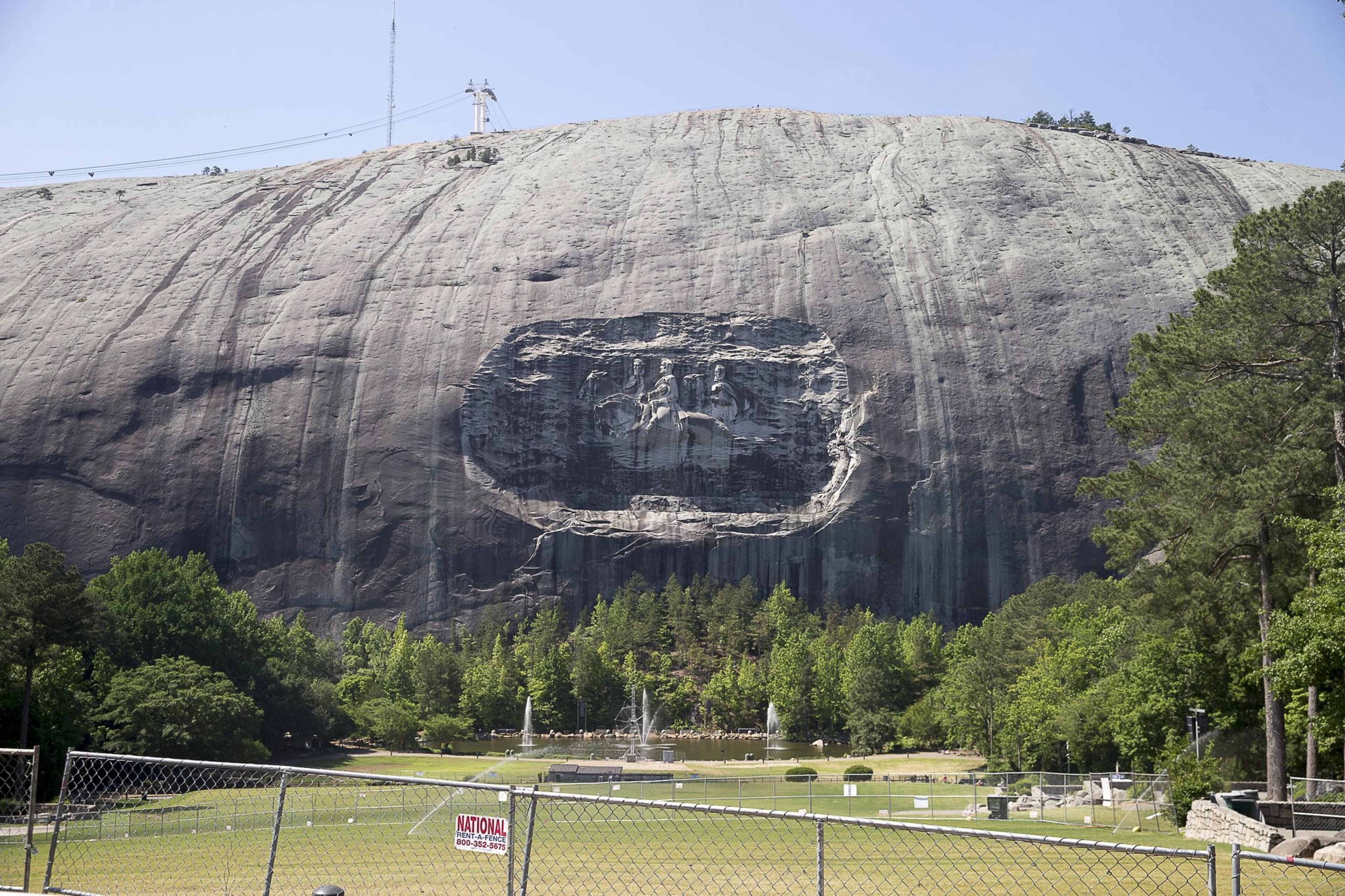State to help city of Stone Mountain shed its old reputation
At the base of Georgia’s most popular tourist attraction sits a small town with the same name. As one boasts a theme park and hiking trails, the other has fallen victim to a troubling reputation, residents and local leaders say.
In the majority-black city of Stone Mountain, many have grown increasingly worried that the mountain's decades-long connection with racist organizations has tainted the city's chances for growth. The Ku Klux Klan underwent a "rebirth" with a rally at the park in 1915. More recently, rallies by Confederate flag-waving white supremacists and white nationalists have brought unwanted media coverage of tense gatherings and counter-protests.
But according to the city’s top administrator, that’s emblematic of the “old Stone Mountain.”
“When, historically, people think about Stone Mountain Village, it was this place that wasn’t really open to outside influences,” City Manager ChaQuias Miller-Thornton said. “We’re beyond that. We don’t want that to continue to be our narrative.”

As several storefronts in downtown Stone Mountain sit vacant, the city and its residents are working to rebrand and create a new identity — one that can distance the city from what many describe as a “stigma” attached to the Stone Mountain name and history.
To help with the effort, the city invited in the Georgia Tourism Product Development Team, which spent Tuesday and Wednesday visiting the town. City officials hope the tourism office will help the city attract new businesses and visitors, developing its image as an inclusive, diverse community.
Some “don’t actually know that our largest population is African American, because that’s not been the voice,” Miller-Thornton said, noting that the city is about 70 percent black.
Overcoming a bad rep
Janie Rector, 76, remembers when the historically black part of the city was lined with just dirt roads.
“I was here as a little girl. I’m sure you’ve heard of the Klan coming through at the time? That was a time when you had to go in and stay in your house and just waited,” said Rector, who now works for the city’s oldest black church, Bethsaida Baptist Church.

Stone Mountain’s Confederate past overshadows its storied black history. In the southeast corner of the city sits Shermantown, which sprang up as a black neighborhood following William Tecumseh Sherman’s march to Savannah during the Civil War. The neighborhood has its own cemetery and a number of historic black churches.
Bethsaida was built in 1868 out of Stone Mountain granite, with stained glass windows circling the sanctuary. Rector said outdoor church services began several years earlier, according to the oral tradition that was passed down to her.
“The old ones, they were the kind that believed in work,” she said. “They worked their jobs during the day, come here and work in the evenings … built the church with rocks and everything.”
The city should not erase the history that’s part of Stone Mountain Village, said Melissa Jest, a member of the tourism development team who specializes in historic preservation.
“Let’s just interpret it,” she said. “This is just an opportunity to zoom the lens out and tell a fuller story, good, bad and ugly.”
The park and the city share many Civil War ties. The carving on Stone Mountain, completed over the course of several decades starting in 1923, is considered the largest Confederate monument in the world. The city is home to a cemetery for hundreds of Confederate soldiers, and some of the homes are built in a style that evoke the Antebellum era. The city has a road called Venable Street, which bears the name of James Venable, who was an imperial wizard of the KKK and the mayor of Stone Mountain in the 1940s.
“I’ve had people, my family, (ask) ‘Why do you want to move to Stone Mountain?’” said resident Betty Pompey, 71, who is black. “It’s not like that any more. It’s different, I feel welcome.”
» PHOTOS: Stone Mountain through the years
But the unflattering headlines associated with Stone Mountain Park have only stepped up since 2015, though its physical attractions and natural beauty keep attendance high.
“Many people think we own the park. They don’t understand that there’s the park, and there’s the city, and then there’s the greater Stone Mountain area,” said Chakira Johnson, a city councilor and mayor pro tem. “It’s really kind of confusing.”
The park made national news starting when hundreds rallied at the mountain in support of Confederate symbols and monuments in 2015. A 2016 “white power” rally at the park became tense when counter-protesters attempted to confront the group. White supremacists tried to rally at the park during Super Bowl weekend this year, prompting officials to close the park.

Stone Mountain Village has more attractions to offer outside of the park and its Confederate history, officials said, like the old train depot that will become the new welcome center for the village. Visitors can also take the "Stone's Throw" walking tour of the village, or visit a quirky store that boasts the world record for the largest miniature chair collection.
It remains to be seen whether the city can escape the shadow cast by Stone Mountain's reputation through an enhanced tourism campaign. It will take a "delicate balance" to move forward and rebrand as the "new Stone Mountain," said state Rep. Billy Mitchell, who represents the area and served on the City Council from 1995 to 2002.
“We have a number of citizens … who think it is fine as it is,” Mitchell said. “And then we have those who think it celebrates an era that should not be.”
A downtown poised for growth
Karen Patton remembers when the heart of Stone Mountain was bustling and full of commerce.
“It was vibrant, there were people everywhere,” said Patton, a chef who opened Sweet Potato Cafe about seven years ago. “Within a few years, it sort of started dying out.”
Downtown Stone Mountain feels somewhat like a serene ski village at the foot of the Swiss Alps, with the mountain visible in the background and a classic, small-town vibe on Main Street. But many of the shops are now vacant, with logos of shuttered businesses still painted on some walls. The city does not have an exact count of how many stores are hollow.
Miller-Thornton said in the 2000s, as the recession hit, many shops closed. Some believe Stone Mountain’s reputation is partly to blame for its inability to fully bounce back after the economy crashed.

There is a reason for hope — several new businesses have opened in downtown Stone Mountain in the last year, including Stoned Pizza Kitchen and Coze Tea Studio, a specialty tea shop. Some more businesses are slated to open soon, including the city’s first microbrewery.
The city isn’t launching any new tourism advertisements or a rebranding campaign just yet. That might come later, after the tourism team makes suggestions and the city applies for grants. For now, officials are taking incremental steps to increase outreach: inviting marginalized groups to city events, visiting schools and churches and stepping up the city’s social media presence.
Johnson, the mayor pro tem, said Stone Mountain still has work to do when it comes to investing in its black communities, but she is cautious of revitalizing them to the point that it drives out residents through gentrification.
“We do have a negative history to overcome,” she said. “I think we’ve done a great job of overcoming it. We’ve not done a great job of telling our story and how we’ve overcome it.”


